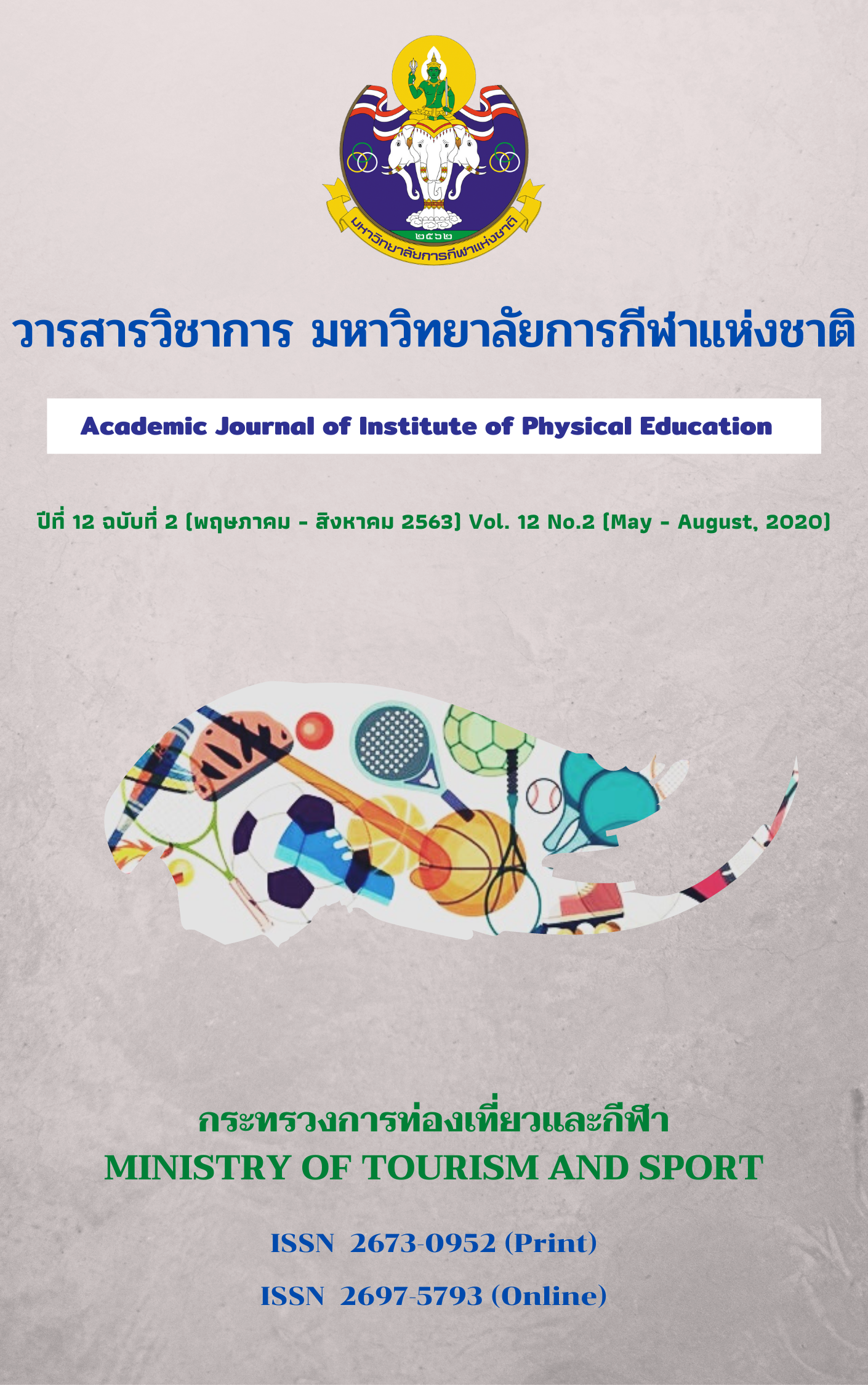BEHAVIOR MODIFICATION PROGRAM TO PREVENT DIABETES AND HYPERTENSION OF THE STAFF AT RISK IN HIGHER EDUCATION INSTITUTIONS
Main Article Content
Abstract
The purpose of this research was to develop a behavior modification program to prevent diabetes and hypertension of staff at risk in higher education institutions. Documentary research and related comprehensive articles were analyzed and synthesized, Health belief model and health literacy were used. After the program was developed, the content of the program and the consistency of the content was presented to five experts for assesment including 1) assessment form for content validity, activity components, 2) content validity evaluation of 10 activities, and 3) an evaluation form for content validity of the developed program.
The results showed that index of congruence of the program consisted of title of the program, activities. purpose, conceptual framework, steps in the activities was 1.00. This program had 10 activities, i.e., 1) Build up Friendship to Promote Positive Power 2) Hope 3) Holistic Health 4) Self-review 5) Right on the Target 6) Yoga for Relax 7) Let’s relax 8) Nutrition Knowledge 9) My Favorite Menu 10) My Idol. The average mean of index of congruence was 0.88. It was suggested the program should be 8 weeks, 3 days a week, 1 hour per day. The index of congruencies of the overall program was 0.87. The program was determined to promote the staff at risk to modify their behavior.
Article Details
The published article is a copyright of the Academic Journal of Thailand National Sports University. The passage appeared in each article in this academic journal is a perspective of each author which is not related to the journal. Each author is required to be responsible for all components of his/her own article. If there are any mistakes, each author must be responsible for those mistakes on his/her own.
References
Department of Disease Control, Ministry of Public Health. (2017). Model of Diabetes Mellitus and Hypertension Prevention Service. Nonthaburi: Argricultural cooperative of Thailand.
Foundation of Thai Gerontology Research and Development Institute. (2014). Thai Eldery 2014. Bangkok: Author.
Health Education Division. (2011). Health Literacy. Nonthaburi: Newthammada Printing.
Jintana Sarayuthpitak. (2010). Intervention activities model development for smoking behaviors change in male adolescent. (Doctoral dissertation). Chulalongkorn University.
Jintana Sarayuthpitak. (2014). School Health Program. Bangkok: Chulalongkorn University.
Keranen A.M. et al. (2009). The effect of eating behavior on weight loss and maintenance during a lifestyle intervention. Preventive Medicine, 49(1), 32-38.
Nongluck Tesana, Jamabhorn Jaipakdee, Boontanakorn Prompukdee and Kanokporn Pinijluek. (2015). Development Model of the Type 2 Diabetes Mellitus Prevention in High Risk Group. Retrieved December, 20, 2017 from https://www.hsri.or.th/ researcher/research/new-release/detail/6235.
Nutbeam D. (2008). The evolving concept of health literacy. Social Science & Medicine.
Ratchanee Utasingha. (2014). A model in preventing diabetes type 2 of the groups at risk of developing diabetes in UbonRatchathani Municipality in Muang District of Ubon Ratchathani Province. Journal of Graduate School, Pitchayatat, 9(2), 37-43.
Rimer & Glanz. (2015). Health Behavior and Health Education. (4th ed.). San Francisco: A Wiley Imprint.
Rovinelli, R. J., and Hambleton, R. K. (1977). On the use of content specialists in the assessment of criterion-referenced test item validity. Tijdschrift voor Onderwijsresearch, 2(2), 49–60.
Siripimol Anchalisangkat. (2010). A study of effects of yoga in treatment of diabetes. Journal of Division of Complementary and Alternative Medicine, 3(3), 36-47.
Soontharee Khampeng and Aorntira Boonpradit. (2013). The effects of using health promotion program and social support among people with hypertension in Donpud District, Saraburi Province, Thailand. Nursing Journal of the Ministry of Public Health, 22(3), 112-123.
Supaporn Wangkawing. (2011). Effects of storytelling on brisk walking behavior, eating behavior, and blood pressure levels of hypertensive patients. (Doctoral dissertation). Burapha University.
WHO. (1998). The World Health Report 1998 Life in the 21st century: A vision for all. Geneva: Author.
WHO. (2013). World Health Statistics 2013. Geneva: Author.


